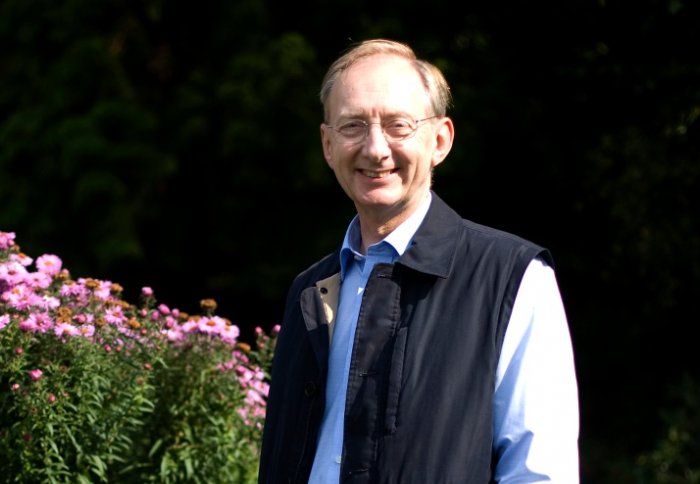Top physicist John Pendry takes a slice of $1 million Dan David prize

Professor Sir John Pendry was planning celebratory pancakes last night after winning this year's Dan David prize in the 'future' category.
The prize was set up in 2000 by Romanian-born Israeli businessman and philanthropist Dan David. Each year, three themes are selected under the categories of past, present and future. This year’s future theme is nanoscience, for which Professor Pendry, who is Chair in Theoretical Solid State Physics at Imperial, shares the prize.
Each category is awarded $1 million, from which the laureates donate 10 per cent of their winnings to fund outstanding graduate students in their respective fields. The prize is awarded jointly by the Dan David Foundation and Tel Aviv University.
Professor Pendry is a leading scientist in the fields of nano-optics, which explores how light behaves on a scale of one billionth of a metre, and metamaterials, which are manmade materials with unusual properties that are not found in nature.
His work in nano-optics has led to the theory of a ‘perfect lens’, and his work in metamaterials led to the creation of the first working prototype of an ‘invisibility cloak’.
How did you find out you had won? What was your reaction?
I was in Mexico and my cellphone rang in the middle of the night with a call from Israel. Next morning I wondered if I had just had a dream.
How do you plan to celebrate?
Tonight my wife and I will celebrate with a few pancakes, then later in the week perhaps some drinks with my friends.
What do you think you might do with the rest of your prize money?
I suggested to my wife that we might buy a Tesla electric car but I don’t think she is going to agree to that even after I have cooked some pancakes for her!
What do achievements like this mean to you?
My most recognised work has come rather late in my life – an Indian summer – so the odd pat on the back is very nice to have.
You’ve received many awards for your research. Why do you think it stands out?
Research is about taking risks. Many times projects fail or just turn up quite ordinary results. Occasionally you hit the jackpot, people get excited about your work, and recognition comes your way. All that is a matter of luck.
Article text (excluding photos or graphics) © Imperial College London.
Photos and graphics subject to third party copyright used with permission or © Imperial College London.
Reporter
Hayley Dunning
Communications Division